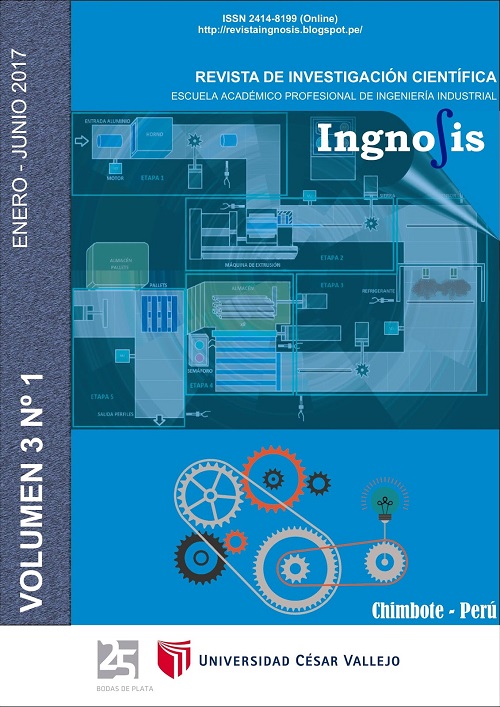Validation of a simplified sterilization of canned foods developed by the explicit finite differences method
DOI:
https://doi.org/10.18050/ingnosis.v3i1.2019Keywords:
Sterilization, Explicit finite difference, Thermal diffusivity, Lethal valueAbstract
The most commonly used heat treatment that ensures safety in the food industry is the sterilization, process performed regardless subtreatments and overtreatment in food. In order to achieve optimal value lethal to marine products, heat penetration studieswere performed on two types of canned, bonito (Sarda Sarda), oil, water and salt; and bonito (Sarda Sarda), mix vegetables (peas and carrots), oil, water and salt; both in type containers tuna (307x109mm) -colorless outer / inner aluminum. With which the 푓ℎ(slope of the line), The useful value to find the thermal diffusivity (α) by the Hayakawa method for a finite cylinder, the thermal diffusivities for the first and second product types in tests I, II and III for each were1.38x10-7m2/s, 1.63 x10-7m2/s, 1.55 x10-7m2/s, 1.64 x10-7m2/s, 1.69 x10-7m2/s y 1.75 x10-7m2/s.Values that coincide with those determined by Sing & Heldman 1998) and Shafier & Said (2009). The experimental lethal values (퐹0)in the first and second products for tests I, IIand III were19.67 min, 21.67 min, 22.73 min, 23.83min, 22.60 min y 21.75 min. Comparing the average values of experimental and simulated 퐹0in the Visual Basic program if there are significant differences.
Downloads
Published
How to Cite
Issue
Section
License

This work is licensed under a Creative Commons Attribution-NonCommercial 4.0 International License.











